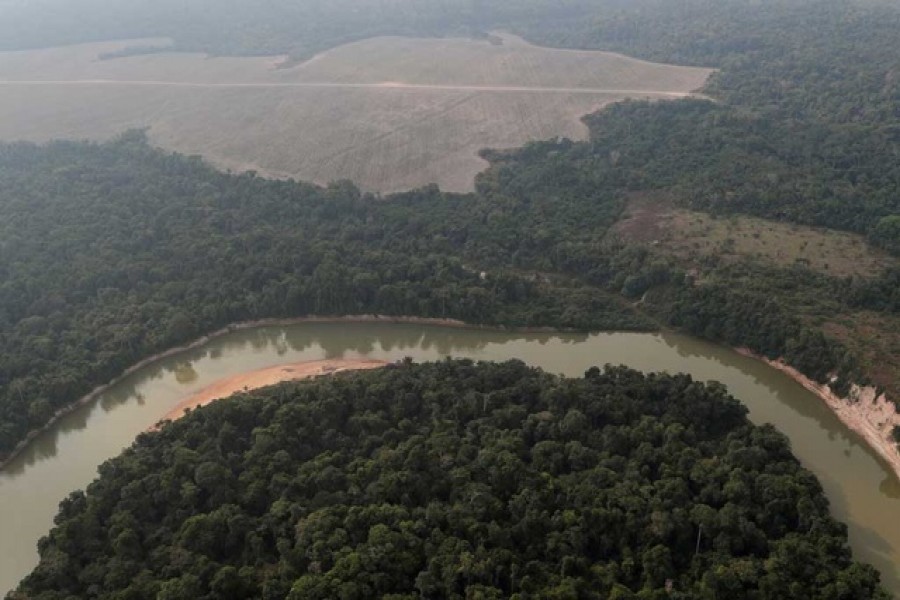Deforestation in Brazil's Amazon rainforest soared 22 per cent in a year to the highest level since 2006, the government's annual report showed on Thursday, undercutting President Jair Bolsonaro's assurances that the country is curbing illegal logging, reports Reuters.
Brazil's space research agency, INPE, recorded 13,235 square kilometres (5,110 square miles) of deforestation in the world's largest rainforest in its PRODES satellite data, an area nearly 17 times the size of New York City. The official deforestation data covers a period from August 2020 through July 2021.
The surging destruction comes despite Bolsonaro's efforts to show his government is serious about protecting the Amazon, considered critical to staving off catastrophic climate change.
The far-right former army captain still calls for more mining and commercial farming in protected parts of the rainforest.
At the UN climate summit in Glasgow this month, COP26, Brazil's government brought forward a pledge to end illegal deforestation by two years to 2028, a target that would require aggressive annual reductions in the destruction.
The INPE report, dated Oct 27, showed deforestation rising in each of the last four cycles - a first for the data series since at least 2000.
"Notice the date on the INPE note. The government went to COP26 knowing the deforestation data and hid it," wrote Brazilian advocacy group the Climate Observatory on Twitter.
A source with knowledge of the matter confirmed that the government had the data in hand prior to the UN summit.
In the run-up to the summit, Brazil's government had touted preliminary monthly data pointing to a slight decline for the annual period as evidence it was getting deforestation under control. The more refined final data instead showed a dire picture.
"The numbers are still a challenge for us and we have to be more forceful in relation to these crimes," Environment Minister Joaquim Pereira Leite said at a news conference on Thursday.
He told reporters the data did not reflect recently stepped up enforcement against illegal deforestation, while conceding the government must do more to fight the destruction.
The data also casts doubt on Brazil's signing up to a global pledge with more than 100 other nations to eliminate deforestation worldwide by 2030, also announced during the summit.
Brazil, as home to the majority of the world's largest rainforest, was seen as crucial to that global pact. The Amazon's trees absorb vast amounts of carbon dioxide that would otherwise warm the planet.
But some scientists warn that if enough of the forest is destroyed, it could cross a tipping point, dry out and turn into savannah.
That would release huge amounts of carbon, virtually ensuring the world cannot hit the targets laid out to avoid the worst effects of climate change.
Yet Bolsonaro's moves to show the government is protecting the forest have fallen short. He has regularly deployed the military to the Amazon since 2019 to aid in policing deforestation. But a Reuters investigation showed military missteps and incompetence failed to rein in the environmental damage.
Mauricio Voivodic, head of environmental group WWF in Brazil, said the numbers laid bare "the real Brazil that the Bolsonaro government tries to hide with imaginary discourses and greenwashing efforts abroad."
"What the reality shows," he said, "is that the Bolsonaro government has accelerated the course of the Amazon's destruction."


